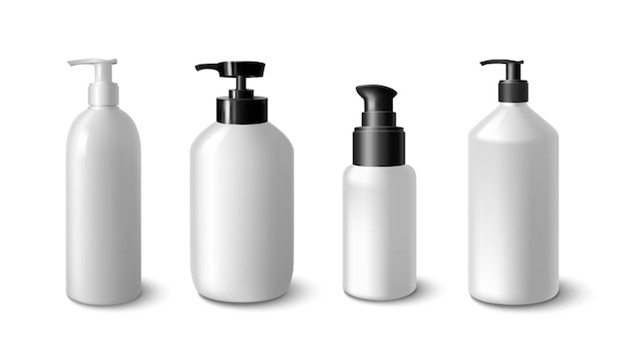What is oxo biodegradation? The term ‘oxo-biodegradation’ is a hybridization of two words, oxidation and biodegradation. It defines clearly a two-step process initiated in by the additive to degrade the polymer chain (break up) and make it available for biodegradation within the environment when a treated item has finished its useful life. The phase of oxidation reduces the molecular weight and introduces oxygen into the structure. This process transforms the polymer from long strands to much smaller lengths. By reducing the chain length of the polymer the material loses its physical strength and elongation properties making it brittle and none ‘plastic’. The biodegradation aspect refers to the conversion of these lower molecular weight species by bacteria into biomass, CO2 and H2O in an aerobic environment, or in the case of an anaerobic environment, CH4. Biodegradation can only occur in environments that have warmth, bacterial activity and moisture. This fact is often overlooked when marketing oxo-biodegradable materials. Oxo biodegradation technology: A very small amount of oxo biodegradable additive is put into the manufacturing process. This breaks the molecular chains in the polymer, and at the end of its useful life the product falls apart. The plastic does not just fragment, but will be consumed by bacteria and fungi after the additive has reduced the molecular weight to a level (below 5000) which permits micro-organisms access to the carbon and hydrogen. Oxo-biodegradable products do not degrade immediately in an open environment because they are stabilized to give the product a useful service-life.  Why do we need oxo biodegradable packaging? Thousands of tons of plastic waste enter the world's environment every day, and will remain there for hundreds of years, unless collected for incineration. The oxo-biodegradable process provides an alternative to prohibiting plastic by providing the most effective method of plastic disposal without damaging the environment. The oxo-biodegradation option that uses oil or natural gas by-products, provides several advantages over the alternative, hydro-biodegradability that uses vegetable products such as starch. Packaging is one of the largest industry sectors in the world, worth several billions. Oxo biodegradable packaging represents a meager percentage of this huge market. Oxo biodegradable packaging plays an important role in the packaging industry due to the ever increasing consumer awareness and importance of using eco-friendly, biodegradable packaging materials instead of conventional non biodegradable ones. Not only can switching to oxo biodegradable packaging help to distinguish your product, it can also increase brand recognition and build loyalty with the increasing number of environmentally aware consumers. The introduction of oxo biodegradable packaging across your product range is also a great opportunity to demonstrate to your customers that your brand is committed to a more sustainable environment. An increasing number of forward-thinking business owners are turning to oxo biodegradable packaging as an environmentally responsible alternative to conventional plastic. Importance of the right oxo biodegradable additive To make ordinary plastic such as polyethylene or polypropylene oxo biodegradable, you add a prodegradant additive, during the extrusion stage. No re-tooling at the factory is necessary and no alterations to the existing supply chain. Use Oxo biodegradable additive based on transition metal ions of cobalt or iron or manganese, which are trace elements required in the human det. It is not advisable to use the oxo biodegradable additive based on heavy metals such as lead, mercury, cadmium and chromium. Use oxo biodegrdable additive which is harmless, safe for food contact and with harmless residue. Oxo-bio additives use a transition metal salt as a catalyst. This will be triggered into catalytic action very easily, and this is a great asset when degradation is required. However, premature degradation would be extremely unhelpful. The solution is to balance special stabilizers in the additive that will restrain the catalyst during processing and use, yet allow the plastic fragments, which grow ever smaller, will join the trillions of other particles in the soil and oceans, where they are bio assimilated. Applications
Why do we need oxo biodegradable packaging? Thousands of tons of plastic waste enter the world's environment every day, and will remain there for hundreds of years, unless collected for incineration. The oxo-biodegradable process provides an alternative to prohibiting plastic by providing the most effective method of plastic disposal without damaging the environment. The oxo-biodegradation option that uses oil or natural gas by-products, provides several advantages over the alternative, hydro-biodegradability that uses vegetable products such as starch. Packaging is one of the largest industry sectors in the world, worth several billions. Oxo biodegradable packaging represents a meager percentage of this huge market. Oxo biodegradable packaging plays an important role in the packaging industry due to the ever increasing consumer awareness and importance of using eco-friendly, biodegradable packaging materials instead of conventional non biodegradable ones. Not only can switching to oxo biodegradable packaging help to distinguish your product, it can also increase brand recognition and build loyalty with the increasing number of environmentally aware consumers. The introduction of oxo biodegradable packaging across your product range is also a great opportunity to demonstrate to your customers that your brand is committed to a more sustainable environment. An increasing number of forward-thinking business owners are turning to oxo biodegradable packaging as an environmentally responsible alternative to conventional plastic. Importance of the right oxo biodegradable additive To make ordinary plastic such as polyethylene or polypropylene oxo biodegradable, you add a prodegradant additive, during the extrusion stage. No re-tooling at the factory is necessary and no alterations to the existing supply chain. Use Oxo biodegradable additive based on transition metal ions of cobalt or iron or manganese, which are trace elements required in the human det. It is not advisable to use the oxo biodegradable additive based on heavy metals such as lead, mercury, cadmium and chromium. Use oxo biodegrdable additive which is harmless, safe for food contact and with harmless residue. Oxo-bio additives use a transition metal salt as a catalyst. This will be triggered into catalytic action very easily, and this is a great asset when degradation is required. However, premature degradation would be extremely unhelpful. The solution is to balance special stabilizers in the additive that will restrain the catalyst during processing and use, yet allow the plastic fragments, which grow ever smaller, will join the trillions of other particles in the soil and oceans, where they are bio assimilated. Applications
- Carrier bags or "shopper-bags" which consumers use to take away their purchases from the shop
- Aprons, for the protection of garments, in the home, hospitals, restaurants, workshops etc.
- Bags to contain dog feces collected in parks, gardens, etc.
- Rigid products such as bottles and cups
- Mulch films
- Aprons, for the protection of garments, in the home, hospitals, restaurants, workshops
- Gloves
- Bin liners
- Plastic sheeting for a variety of applications in agriculture and horticulture
- Plastic film for wrapping newspapers and magazines
- Bread bags
- Frozen food bags
- Wrappers for cigarette packets
- Shrink-wrap and pallet-wrap
- Bubble-wrap
Author Mercy P. Bulsari Polymer Technologist Member- International Committee, Plast India Foundation Member – Indian Plastics Institute (IPI) Email: mbulsari5@gmail.com














Comments